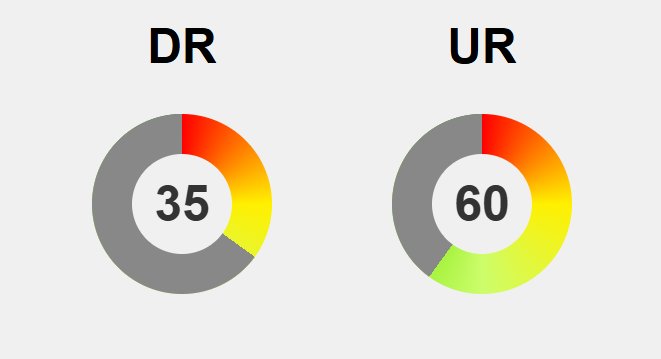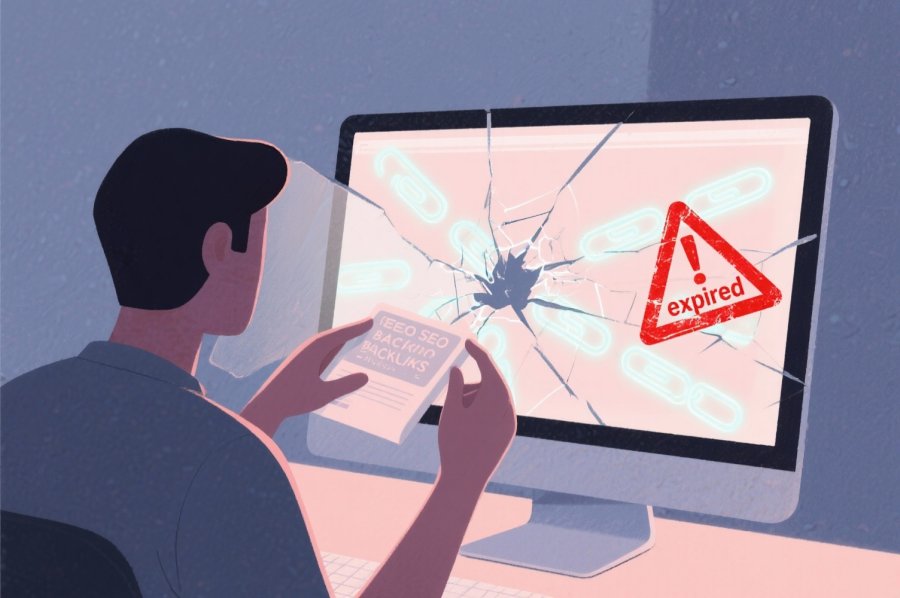Christopher Columbus’s 1492 voyage is a story of daring exploration that forever changed our understanding of the world—yet it is fraught with controversy. His journey unveiled new lands and initiated the Columbian Exchange, transforming diets, ecosystems, and global trade. But at what human cost? The subsequent colonization brought violence, displacement, and cultural destruction to indigenous peoples, casting a shadow over his legacy. This paradoxical history challenges us to reconsider the true impact of discovery—balancing progress with justice. Is his legacy one of visionary conquest or tragic exploitation? As modern perspectives evolve, so too does our understanding of exploration’s moral responsibilities. Columbus’s story remains a powerful reminder that every voyage into the unknown carries profound consequences—highlighting the importance of empathy, cultural respect, and ethical reflection in shaping a more equitable future. How do we reconcile the transformative achievements with the darker realities of colonization?
Columbus’s Voyage: A Turning Point in World History
Christopher Columbus’s voyage in 1492 is widely considered a turning point that reshaped the course of world history. His daring journey across the Atlantic opened a new chapter of exploration, connecting distant lands and igniting a wave of European expansion. While often credited with “discovering” the Americas, his expedition was more about ambition and curiosity—drives that pushed humans to explore the unknown and challenge existing worldviews.
Columbus’s arrival in the Caribbean marked the beginning of European colonization in the New World, with profound and lasting consequences for indigenous populations. His voyages sparked a global exchange of goods, ideas, and cultures, known as the Columbian Exchange, which transformed diets, ecosystems, and economies on both sides of the Atlantic. This interconnectedness laid the groundwork for modern globalization, making the world more connected than ever before.
However, Columbus’s story also raises complex questions. His explorations led to violence, displacement, and cultural upheaval for native peoples. The brutality of colonization, driven by greed and conquest, caused suffering that echoes through history. Recognizing this darker side is essential to understanding the true legacy of his voyages—an impact that is as controversial as it is transformative.
His journey into uncharted waters challenged long-held beliefs about the world’s size and geography. It shattered myths and revealed new lands, but it also unleashed centuries of exploitation and conflict. Columbus’s voyage didn’t just expand maps; it reshaped how nations, societies, and individuals saw their place in a vast, interconnected world.
Today, Columbus’s legacy remains a subject of debate. His role in history embodies both the spirit of discovery and the costs of empire-building. His voyage of 1492 changed everything, reminding us that exploration is never just about new lands—it’s about the profound and often painful consequences of pushing beyond known horizons.
From Genoa to the Open Seas: Columbus’s Early Influences
Christopher Columbus’s journey into exploration was shaped by the environment and circumstances of his early life. Born in Genoa around 1451, he grew up in a modest family—his father was a wool weaver, and his mother came from a merchant background. The lively port city exposed him to maritime life from a young age, fueling a fascination with ships, maps, and distant lands. This environment sparked his curiosity and set the stage for a life driven by adventure and discovery.
By his teens, Columbus was already sailing along the Mediterranean coast, gaining hands-on experience on merchant vessels. These early voyages taught him navigation skills, how to read the stars, and the unpredictable nature of long sea crossings. Exposure to different cultures and trade routes broadened his worldview, reinforcing his belief that the world was larger and more connected than most thought. He became convinced that sailing west could lead directly to Asia’s riches, a bold idea rooted in the works of ancient geographers like Ptolemy.
Despite widespread skepticism, Columbus’s conviction only grew stronger. He studied maps and texts diligently, developing a clear vision of a shorter route to Asia by heading west across the Atlantic. His relentless pursuit of support led him to approach European monarchs, finally securing backing from Spain’s Queen Isabella and King Ferdinand in 1492. Their sponsorship was motivated by the promise of wealth, glory, and strategic advantage.
His early years of practical sailing and geographic curiosity laid a firm foundation for the historic voyage that followed. These influences—hands-on maritime experience, a hunger for discovery, and exposure to diverse cultures—shaped Columbus’s ambitions. His background was more than just a starting point; it was the catalyst that propelled him into the uncharted waters that would forever alter the course of history.
The Historic 1492 Voyage: Discovery and Dangers
Columbus’s voyage of 1492 was the culmination of years of careful planning and relentless negotiation. After securing backing from Spain’s Queen Isabella and King Ferdinand, he prepared his three ships—the Santa María, the Pinta, and the Niña—and set sail from the port of Palos de la Frontera in August. His goal was to find a westward route to Asia, bypassing the perilous journey around Africa’s southern tip. Columbus believed the Earth was smaller than most thought, and that sailing west would lead directly to the riches of the Indies.
The voyage across the Atlantic was fraught with danger. The ships faced storms, dwindling supplies, and growing unease among the crew. Columbus relied on traditional navigation methods—using the stars, compass, and dead reckoning—trusting that land was near. Weeks at sea without sight of land tested everyone’s patience, and some sailors questioned whether they had sailed too far or even fallen off the edge of the world. Despite the rising tension, Columbus remained steadfast, insisting that land was just over the horizon.
Finally, on October 12, 1492, land was spotted after more than two months at sea. The exhausted crew gazed in hope, believing they had reached Asia’s outer islands. Columbus, however, thought he had found the eastern shores of Asia and called the islands the Indies. Instead, they had stumbled upon a chain of islands in the Caribbean—an entirely new world to Europeans.
Columbus’s first landfall was on a small island he named San Salvador. Though convinced he had reached Asia, he had actually discovered the Americas—an uncharted continent that would soon transform global history. His arrival marked the beginning of European exploration and colonization, setting the stage for centuries of change that would reshape the world forever.
For those interested in exploring the full story of this historic voyage and its enduring impact, a detailed account can be found at Columbus’s 1492 Voyage. Understanding this pivotal moment in history offers valuable insights into how exploration shaped the modern world and continues to influence global connections today.
Expanding Horizons: Voyages, Encounters, and Indigenous Impact
After his initial voyage, Columbus didn’t stop at the Caribbean. He launched more expeditions, eager to expand Spain’s holdings and uncover hidden riches. These later journeys took him along the coasts of Cuba and Hispaniola, where he established settlements and claimed new lands for Spain. As he pushed further into Central America, his pursuit of gold and new territories grew more intense, though success was mixed. Each voyage deepened European knowledge of the region, but it also increased the impact on indigenous populations, who faced violence, displacement, and exploitation.
Columbus’s encounters with native peoples were complex. Some interactions involved trade and cultural exchange, but many were marred by force. His relentless quest for gold and resources led to brutal treatment—kidnapping, forced labor, and violent punishments. These actions devastated indigenous communities, exposing them to deadly diseases like smallpox, which wiped out entire populations with no immunity. Such early contact set a pattern of colonization rooted in conquest and exploitation that would last for centuries.
The settlements Columbus helped establish, especially on Hispaniola, became hubs for further exploration. Spanish explorers and settlers moved quickly to claim land, build towns, and impose their culture and religion. This often meant destroying native traditions and forcing indigenous peoples into servitude. The European influence reshaped the social and cultural landscape, with long-lasting effects on the identity of the Americas.
Columbus’s methods and treatment of native populations sparked controversy even during his lifetime. Reports of mistreatment and mismanagement led to accusations of tyranny. By 1500, he faced arrest and was returned to Spain in chains. Though later released, his authority was diminished, and his reputation suffered. Yet, his voyages set in motion a wave of exploration that would forever alter the course of history, opening the Americas to European powers and their ambitions.
His initial contact with indigenous peoples brought both opportunities and tragedy. Trade began to flow, but often under terms of domination. Native societies experienced cultural upheaval, violence, and disease, which decimated many communities. These early interactions laid the groundwork for centuries of colonization, shaping the social fabric of the New World in ways still felt today.
European explorers, inspired by Columbus’s discoveries, continued to push into new territories, driven by the search for gold, land, and fame. This expansion brought wealth to Spain and other nations but also accelerated the suffering of indigenous peoples. The pattern of conquest, resource extraction, and cultural suppression became a hallmark of European colonization, with long-lasting consequences.
While Columbus’s voyages are credited with opening the Americas to the world, they also marked the beginning of a brutal chapter of history. The initial exploration was just the start of centuries of exploitation that reshaped entire continents. Recognizing this dual legacy helps us understand the profound and lasting impact of these early encounters, emphasizing both the spirit of discovery and the human costs.
Legacy and Controversy: The Duality of Columbus’s Impact
Columbus’s voyages left a legacy that is both profound and deeply complex. On the positive side, they sparked the Columbian Exchange—a monumental transfer of crops, animals, and ideas that reshaped diets and ecosystems across the globe. Staples like potatoes, maize, and tomatoes transformed European agriculture, while Europeans introduced wheat, sugar, and livestock to the New World. This exchange fueled economic growth and cultural interaction, laying the groundwork for the interconnected world we live in today.
Yet, beneath these advancements lies a darker story. Columbus’s arrival marked the beginning of centuries of colonization marked by violence, exploitation, and cultural upheaval. Indigenous peoples faced displacement, forced labor, and devastating diseases that decimated entire populations. His treatment of native populations epitomizes the brutal methods used to conquer and control, leaving scars that echo through history and continue to influence indigenous communities.
The European colonization that followed reshaped the social and political fabric of the Americas. Colonies were established, cultures suppressed, and native traditions eroded as Europeans pushed for dominance. These actions set a pattern of resource extraction and cultural suppression that persisted for centuries, often at great human cost. Columbus’s role in this process remains a point of fierce debate today.
Despite the controversy, his voyages undeniably opened the Americas to European influence. They laid the foundation for global trade networks and empire-building, transforming the world map and economic landscape forever. However, this progress came with a toll—native communities suffered displacement, violence, and cultural loss that still resonate today.
The ongoing reevaluation of Columbus’s legacy reflects a broader shift toward recognizing the full scope of history. Indigenous voices highlight the suffering and injustice caused by colonization, challenging traditional hero narratives. Embracing this fuller perspective encourages a more honest, inclusive understanding of our shared past.
His story serves as a reminder that exploration’s true impact depends on how its consequences are handled. Progress must be balanced with responsibility, empathy, and justice. Recognizing both the achievements and the atrocities of Columbus’s voyages guides us toward a more equitable future—one that learns from history’s lessons and strives for better.
Lessons from the Past: How Columbus’s Story Shapes Modern Exploration
Columbus’s story continues to shape how we view exploration and ethics today. His voyages symbolize the daring spirit of discovery, but they also serve as a powerful reminder that curiosity comes with moral responsibilities. Modern explorers and policymakers are more aware than ever of the importance of respecting the cultures and ecosystems they encounter. Columbus’s approach—marked by violence and exploitation—stands as a cautionary tale about the human costs of unchecked expansion.
His journey highlights how exploration can inadvertently cause conflict and environmental upheaval. The arrival of Europeans in the Americas introduced new goods and ideas but also brought devastating diseases and cultural dislocation for indigenous peoples. These lessons emphasize the need for cultural sensitivity, long-term thinking, and responsible action. Progress should never come at the expense of others’ well-being, and respecting local sovereignty and traditions is essential.
Today’s debates about Columbus’s legacy reflect a broader shift toward understanding history more fully. Indigenous communities emphasize the suffering caused by colonization, challenging traditional hero narratives. Recognizing both the achievements and atrocities tied to Columbus fosters a more honest, inclusive story—one that prioritizes justice alongside discovery. Listening to marginalized voices reveals ongoing struggles rooted in centuries of exploitation, urging us to reconsider how history is remembered and celebrated.
This reevaluation influences how we approach exploration in the present. Scientific, cultural, or environmental endeavors must be guided by ethics, empathy, and sustainability. Columbus’s story reminds us that curiosity must be balanced with responsibility. By applying these lessons, future explorers can seek knowledge without repeating the mistakes of the past, ensuring that progress benefits everyone, not just a few.
Understanding Columbus’s impact today means embracing a nuanced perspective. His voyages opened doors to a connected world but also initiated centuries of suffering. Recognizing both sides helps us build a more just future—one rooted in respect, responsibility, and inclusivity. This balanced view encourages us to learn from history’s complexities and to approach discovery with compassion and integrity.
Reflections on Discovery: Balancing Progress and Responsibility
Columbus’s voyages mark a pivotal moment that continues to influence our understanding of exploration and its consequences. His daring journey opened the door to a more interconnected world, fostering trade, cultural exchange, and economic growth. At the same time, it set in motion centuries of colonization marked by violence, displacement, and cultural upheaval for indigenous peoples. This dual legacy reminds us that discovery often comes with profound human costs alongside progress.
The Columbian Exchange stands out as one of his lasting contributions, transforming diets and ecosystems worldwide through the transfer of crops, animals, and diseases. While this exchange created new opportunities and global ties, it also triggered devastating epidemics and the destruction of native traditions. Recognizing both the positive and negative impacts helps us appreciate the complex history behind these transformative moments.
Today’s debates about Columbus’s legacy reflect a broader call for honesty and inclusivity. Indigenous voices highlight the suffering caused by colonization, challenging romanticized narratives and urging us to remember the human toll. This shift encourages a more balanced perspective—one that values justice and acknowledges the darker chapters alongside achievements.
His story serves as a reminder that exploration’s true power lies in how it shapes our future, not just in the discovery itself. Progress must be paired with responsibility, empathy, and respect for all peoples and cultures. Learning from history’s lessons ensures we approach new frontiers with humility and care, avoiding the mistakes of the past.
Reevaluating Columbus’s legacy pushes us toward a more thoughtful and compassionate understanding of exploration. It urges us to honor the resilience of indigenous communities and to recognize the importance of cultural sensitivity. Embracing this complexity fosters a future where curiosity is balanced with justice.
In the end, Columbus’s voyages transformed the world—bringing both progress and pain. His story reminds us that discovery is never just about new lands but about the lasting impact on human lives and societies. Moving forward, a nuanced perspective helps us build a more equitable, respectful, and interconnected future rooted in the full truth of our shared history.






